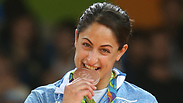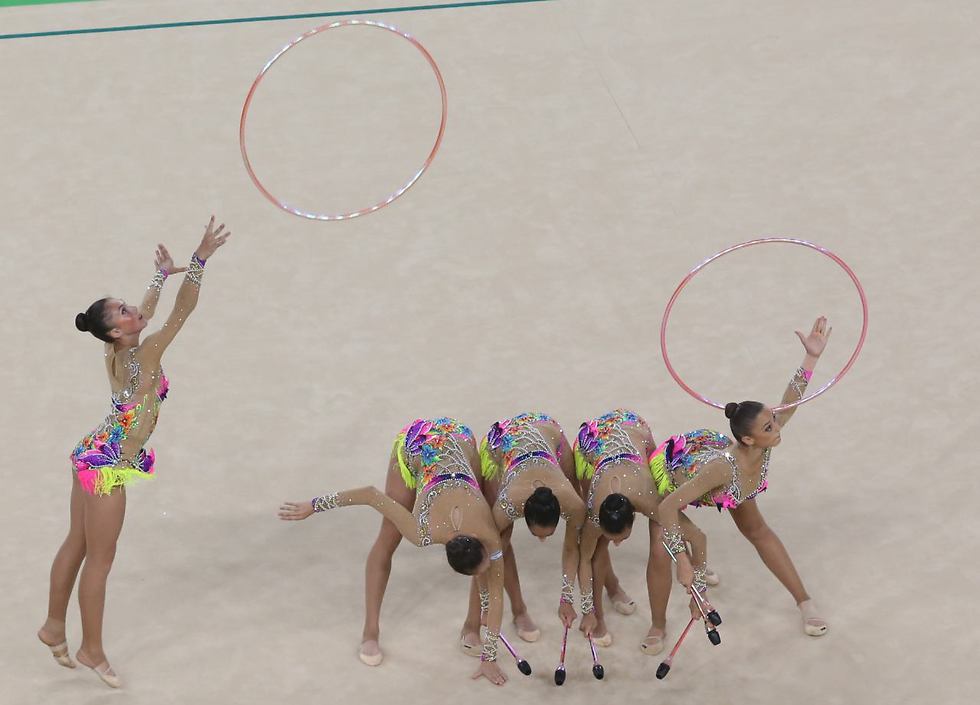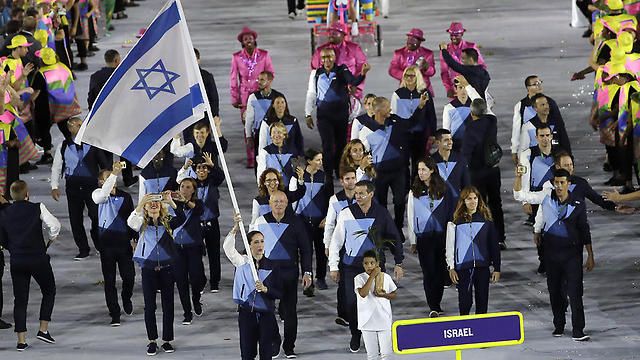
Let's stop deluding our athletes every four years and start over
Op-ed: Israel should focus on investing its resources in sports that are popular and attract an audience, as opposed to investing in sports just for the sake of it; we should also only send those who actually have a chance of reasonable success to the actual games, instead of inflating our Olympic ranks with athletes who have no real shot of winning.
For instance, take high jumper Dima Kroyter, who was clearly not about to compete for any of the top spots, or our three marathon runners who were sent because they managed to achieve the criteria determined by "experts" in Israel regardless of their level when compared to other world competitors. We should only send athletes to the Olympics if they have a chance to reach Olympic achievements, even if that means having a delegation of about 12 instead of the 47 representatives we sent to Rio.
You can't blame the athletes themselves. They did whatever they could, trained for years and worked hard, giving up life's pleasures and their free time. Those who are to blame for our dire sports straits are the managers. Because, as became clear once more in Rio, they have no clue about the sports they're supposed to manage and develop. The coaches need to be changed too—most of those employed here aren't good enough. That's why there's only one choice: Start over. That is, develop and nurture sports that are both popular and draw an audience.
Because what will we get from developing strength in badminton, taekwondo, or rhythmic gymnastics? Who in the world cares about these sports other than during the Olympics? Even when Usain Bolt ran, the athletics stadium was half-empty. In contrast, when the women played soccer, you couldn't find an unoccupied seat. This shows us that many Olympic contests are probably unnecessary.
What's the solution then? A larger budget? Not necessarily, because we're not going to pour more funds into sports in which our audience—like that of the wider world—has no interest. If anyone feels like playing golf or sharpshooting, they can go right ahead. They just need to get the funding themselves. The state should only invest in popular athletic endevors.

Many wrote that we were a "judo empire" after Israeli judokas Yarden Gerbi and Ori Sasson won two bronze medals in Rio. Our world ranking in that sport is 18th. Quite a small empire we have here. The real problem is not the competitors, who brought back medals and respect, but the sport itself. Judo is far from a pure sport. It doesn't really have objective win/lose criteria, and the referee is allowed to determine a win or a loss according to his impression and taste. This happens many times and did in Rio as well.
Yael Arad brought Judo into our lives 24 years ago, and since then it becomes a kind of national sport once every four years. But the rest of the time, it's one of the world's less popular sports.











